
Sep 20, 2019 | News
The ICJ today expressed concern at the killing of lawyer Derk Wiersum, who was shot on 18 September 2019 in broad daylight in front of his home in Amsterdam.
Derk Wiersum was representing a key witness for the prosecution in a high-profile criminal trial against 16 members of a criminal organization, accused of five murders and an attempted murder between 2015 and 2017.
The Netherlands’ counter-terrorism agency, NCTV, is leading a team of police and prosecutors carrying out an investigation into the killing; other lawyers and officials involved in the case have been put under emergency protection.
“The killing of a lawyer, apparently in connection with his work, raises serious concern both for security of lawyers and for the rule of law. We welcome the prompt measures taken by the Dutch authorities to initiate an investigation into this crime, which should lead to the identification and prosecution of the perpetrators. It is also crucial that measures be taken to ensure the safety of other lawyers and other individuals who may be at risk,” said Róisín Pillay, ICJ Europe Programme Director.
Dutch lawyers, prosecutors and judges have issued a joint statement expressing their shock and raising concern at the threat of this attack to the country’s legal system.
Additional information:
International human rights law, including the European Convention on Human Rights to which the Netherlands is a party, requires that States take steps to protect the life and physical integrity of persons who they know or ought to know are at real risk of violence.
According to the UN Basic Principles on the Role of Lawyers, governments must ensure that lawyers are able to perform all of their professional functions without intimidation, hindrance, harassment or improper interference (principle 16). The UN Basic Principles specify that “[w]here the security of lawyers is threatened as a result of discharging their functions, they shall be adequately safeguarded by the authorities” (principle 17).
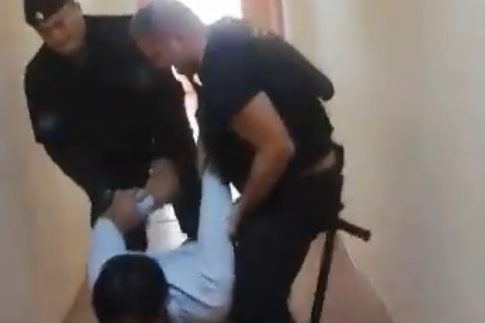
Sep 20, 2019 | News
The ICJ has called on the Russian authorities to institute a thorough and independent investigation into the use of physical force against lawyer Dmitry Sotnikov by court officials and subsequently by the police on 12 September in two separate but linked incidents, and to hold accountable those responsible for the attacks.
The authorities should take effective measures to prevent such attacks in the future, and to ensure that lawyers are not prevented from representing their clients in accordance with law, the ICJ said.
“This use of physical force used against a lawyer solely because he tried to zealously defend his client is contrary to international human rights law and standards, including on the role of lawyers,” Temur Shakirov, Senior Legal Adviser of the ICJ Europe and Central Asia Programme said today.
“It is also of concern that Dmitry Sotnikov was not allowed to represent his client despite clear legal provisions under the law guaranteeing the right to independent legal advice and representation,” he added.
On 12 September, Dmitriy Sotnikov, a Moscow-based lawyer, came to Tula region to represent a client charged with drug trafficking in a hearing at the Novomoskovsk District Court.
Upon entering the courtroom, after having notified the judge that he would be 10 minutes late, Dmitriy Sotnikov reportedly announced that he represented his client Eduard Dolgintsev, presented his licence and a warrant of attorney; he was then told by the judge to sit down.
As he tried to ask one of the key witnesses a question, the judge told him she had never authorized his participation as a lawyer in the proceedings.
In response to this, Sotnikov referred to his rights of audience as a lawyer necessary to fulfill his duties as the legitimate legal representative of his client; however, the judge said Dmitriy Sotnikov was disturbing the court, ordered him to leave the courtroom, and then abruptly announced a recess.
After the recess, Sotnikov was blocked by a court officer from entering the court room. When he attempted to enter the room again, he was pushed face down by the officer and handcuffed.
Thereafter, he was detained by the police, taken to a drug treatment centre, purportedly to ascertain whether he tested positive for drug use, and then brought to the investigative department for questioning.
Reportedly, later that night, after having spent eight hours in the local department of the Investigative Committee without being officially registered, Dmitriy Sotnikov inquired whether he was officially in custody.
On being told that he was not, he attempted to leave and was reportedly again attacked, this time by investigators, who beat him on the head and slammed a door shut on his fingers.
Sotnikov’s lawyer, Svetlana Zavodtsova – who had arrived at the local department of the Investigative Committee to represent Dmitriy Sotnikov – was recording on video on her mobile phone which was taken from her by force while the video of the incident she had recorded was deleted.
The ICJ stresses that in order to fulfill their function lawyers must be able to act without fear and free from fear of reprisals of any kind.
“No justice can be delivered unless the parties to the court process are fully protected and lawyers are able to discharge their functions without harassment, or attack”, Shakirov added. It is now essential for the credibility of the judicial system that the assaults against Dmitry Sotnikov is promptly, thoroughly and independently investigated and that those responsible are brought to justice, the ICJ emphasized.
Additional information
The UN Basic Principles on the Role of Lawyers in its Article 19, specify that “[n]o court or administrative authority before whom the right to counsel is recognized shall refuse to recognize the right of a lawyer to appear before it for his or her client unless that lawyer has been disqualified in accordance with national law and practice and in conformity with these principles”.
Under Article 49.4 of the Criminal Procedure Code of the Russian Federation a lawyer is recognized as the legitimate legal representative of a defendant in a criminal case upon presenting her or his licence and a warrant of attorney; once this is done lawyers enjoy the rights of audience necessary to fulfill their professional duties.
Dmitriy Sotnikov has reportedly sustained injuries from both incidents, and is presently on sick leave undergoing medical treatment for the same.
The ICJ has previously raised concerns at violence and intimidations against Russian lawyers.
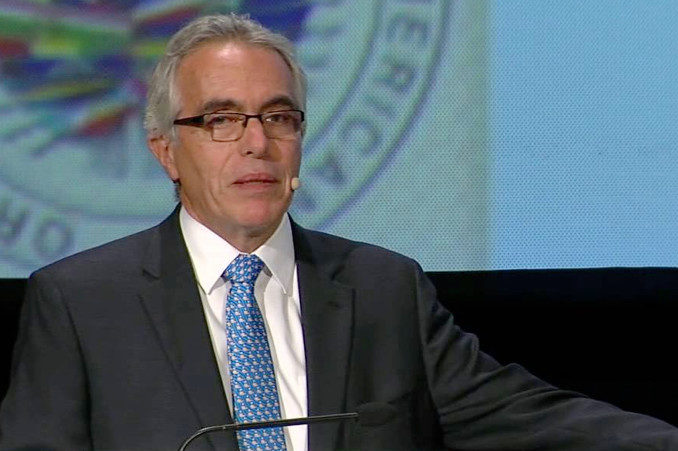
Sep 20, 2019 | News
The ICJ welcomes this week’s visit to Uzbekistan of the UN Special Rapporteur on the independence of judges and lawyers, Diego García-Sayan, during which he will assess reforms of the judicial system, the independence of the judiciary and the independence and role of lawyers.
“The visit of the Special Rapporteur to Uzbekistan, at the invitation of the government, is an indication that the Uzbekistan authorities are serious about the ongoing reforms of the justice system. This visit is only a starting point for the deep reforms needed to establish an independent and fair justice system in Uzbekistan. Realising these reforms will require sustained commitment of all institutions of government, lawyers and civil society,” said Temur Shakirov, Senior Legal Adviser of the ICJ Europe and Central Asia Programme.
The ICJ, along with other NGOs and IGOs, met with the Special Rapporteur in Tashkent yesterday on the first day of his visit, and drew his attention to issues concerning the independence of judges and lawyers in Uzbekistan.
“The visit will be followed by the report of the Special Rapporteur containing findings and recommendations. These recommendations should be effectively implemented and the ICJ is committed to provide expert and other support in the Uzbekistan’s effort to bring its justice system in line with the recommendations,” Shakirov added.
Background
The visit of the UN Special Rapporteur on independence of judges and lawyers takes place from September 19-25, 2019.
The Special Rapporteur will hold meetings with representatives of the government, judiciary, prosecutors, lawyers and civil society and is expected to issue a report analyzing the independence of judges and lawyers in Uzbekistan, following his visit.
The Special Rapporteur on the independence of judges and lawyers is one of the special procedures of the United Nations Human Rights Council, appointed as an independent expert to monitor the compliance of UN Member States with international standards on the independence of judges and lawyers.
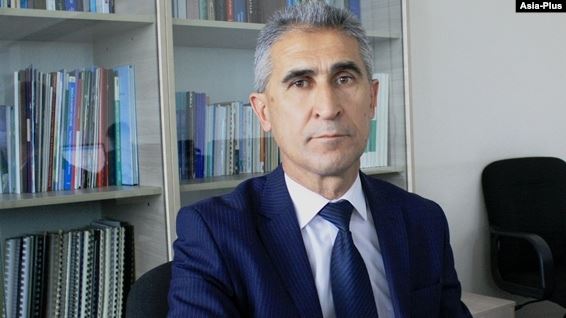
Sep 10, 2019 | News
The ICJ today expressed concern that a Government anti-corruption agency has engaged in acts of intimidation against the Chairperson of the Union of the Lawyers of the Republic of Tajikistan, Saidbek Nuritdinov, and 15 other lawyers.
The intimidation apparently relates to the lawyers’ defence of Abdulaziz Abdurahmonzoda, a lawyer facing trial on charges of fraud, who was allegedly ill-treated in detention by officers of the city Department of the Agency for Financial Control and Combating Corruption of the Republic of Tajikistan (Anti-Corruption Agency).
After the lawyers representing Abdurahmonzoda alleged that he had been ill-treated, the judge of the Sino district of Dushanbe city hearing the case, Ahmadzoda Farogat, requested the Prosecutor General’s Office to investigate the allegations.
Following the initiation of the inquiry of the allegations of ill-treatment, the Head of the Anti-Corruption Agency of Dushanbe, allegedly sent requests to a number of district courts of Dushanbe to obtain information about civil and criminal cases in which Saidbek Nuritdinov had participated as a lawyer.
The requests are said to seek information such as the names and, place of residence of clients: subject matter of civil cases, and details of the charges against his previous clients. In addition, it was reported to the ICJ that Judge Akhmadzoda Farogat, transmitted a list of the fifteen lawyers and copies of their official orders, the documents authorizing the representation of the lawyer, to the Anti-Corruption Agency at its request.
The ICJ notes, that while this information is not confidential per se, previous such investigations of the Anti-corruption Agency have led to criminal prosecution and conviction of lawyers.
“In this case, representation of a lawyer subject to criminal proceedings was undertaken by a group of his colleagues, including the head of the association of lawyers, in line with professional ethics, said Temur Shakirov, Senior Legal Adviser of the ICJ. “Such representation is consistent with international standards on the role of lawyers as well as national law of Tajikistan”.
“If the investigation is related to the lawyers’ representation in the case of Abdurahmonzoda, it would constitute a means of intimidation of the lawyers. And as such it should be ceased, and the lawyers should be able to continue to act freely and diligently in accordance with the national law and international law and standards on the role of lawyers”, Shakirov added.
Background
The criminal case against lawyer Abdulaziz Abdurahmonzoda was initiated under article 247.2, of the Criminal Code (fraud) on 17 April 2019. At the court hearings observed by the ICJ, Abdurahmonzoda insisted on his innocence and alleged breaches of the criminal procedure in course of the preliminary investigation: initiation of a criminal case without legal grounds (the case was said to lack the victim’s statement about the fraudulent actions committed on the part of Abdurahmonzoda); violation of the procedure of the preliminary investigation and submission to the court of evidence knowingly obtained by illegal means. The ICJ is observing the trial.
According to the UN Basic Principles on the Role of Lawyers, governments “shall ensure that lawyers are able to perform all of their professional functions without intimidation, hindrance, harassment or improper interference” and they should not “suffer, or be threatened with, prosecution or administrative, economic or other sanctions for any action taken in accordance with recognized professional duties, standards and ethics.”(Principle 16).
Furthermore, interference or obstruction of lawyer’s activity is prohibited by the Law of the Tajikistan on Lawyers and Lawyers’ Activities. According to the law, a lawyer cannot be held liable for any opinion expressed by him/her as part of his/her lawyers’ activity, with the exception of actions that may constitute a crime. The request from lawyers or lawyer’s unions of information related to the provision of legal assistance in specific cases is not allowed.
According to the Draft Universal Declaration on the Independence of Justice (“Singhvi Declaration”), enable the Bar Association to fulfil its function of preserving the independence of lawyers, they should “be informed immediately of the reason and legal basis for the arrest or detention of any of its members or any lawyer practising within its jurisdiction”. In these cases, bar associations are “ entitled to be represented by its president or nominee to follow the proceedings and in particular to ensure that professional secrecy and independence are safeguarded”.
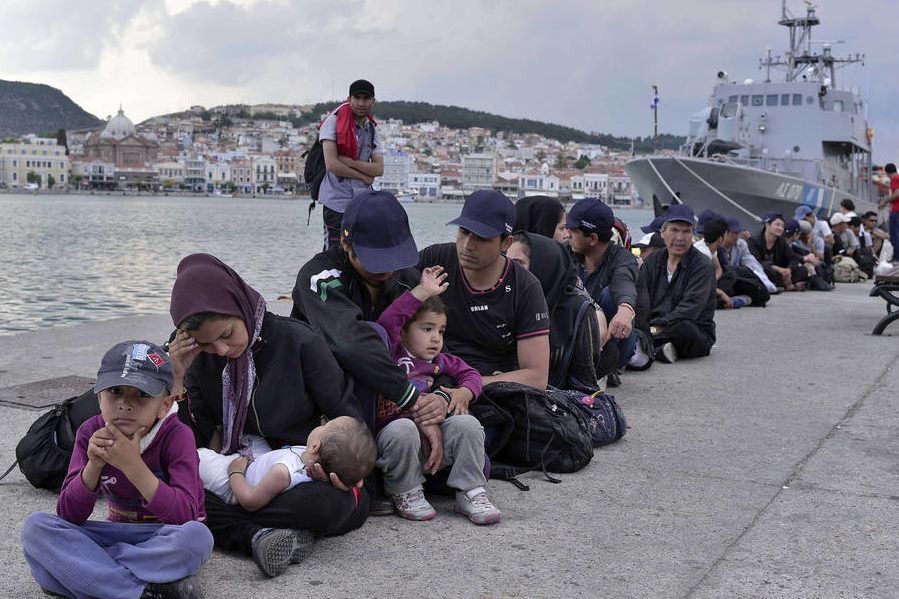
Aug 27, 2019 | News
Following the killing of an Afghan boy in the Moria reception center in Greece, the ICJ calls on the Greek authorities to effectively implement measures of protection prescribed to Greece this May by the European Committee on Social Rights.
According to information by the UN High Commissioner for refugees, the 15-year-old Afghan boy was killed and two other boys injured after a fight broke out at the Moria reception centre on the Greek island of Lesvos.
The safe area at the Moria Reception and Identification Centre, RIC, hosts nearly 70 unaccompanied children, but more than 500 other boys and girls are staying in various parts of the overcrowded facility without a guardian and exposed to exploitation and abuse.
“This is not a situation unique to Moria. In other parts of Greek islands and also on mainland Greece human rights of migrant children are being violated,” said Karolína Babická, ICJ Legal Adviser.
Security of children as well as access to basic needs, such as appropriate shelter, food water or medical care, were the focus of a recent case the ICJ brought together with ECRE and Greek Council for Refugees (GCR) to the European Committee on Social Rights (ECSR).
The ECSR acknowledged the urgency of the situation and decided on immediate measures in the case already on 23 May 2019.
“It is unacceptable that the decision on interim measures has not yet been implemented by the Greek government and now we have to witness such tragic events like a death of a child in the camp,” said Karolína Babická.
“It is a sad wake-up call to the Greek administration that the situation cannot remain like this,” she added.
In its decision, the Committee members required the Greek government to immediately provide migrant children with appropriate shelter, food, water, education and medical care; to remove unaccompanied migrant children from detention and from Reception and Identification Centers (RICs) at the borders, place them in suitable accommodation for their age and appoint effective guardians.
“Greece must urgently bring those children to safety and make sure their basic needs are met and human rights are protected, in order to comply with its international legal obligations,” said Róisín Pillay, ICJ Europe and Central Asia Programme Director.
Contact:
Karolína Babická, Legal Adviser, ICJ Europe and Central Asia Programme, m +32 475 46 2067 ; e: Karolina.Babicka(a)icj.org
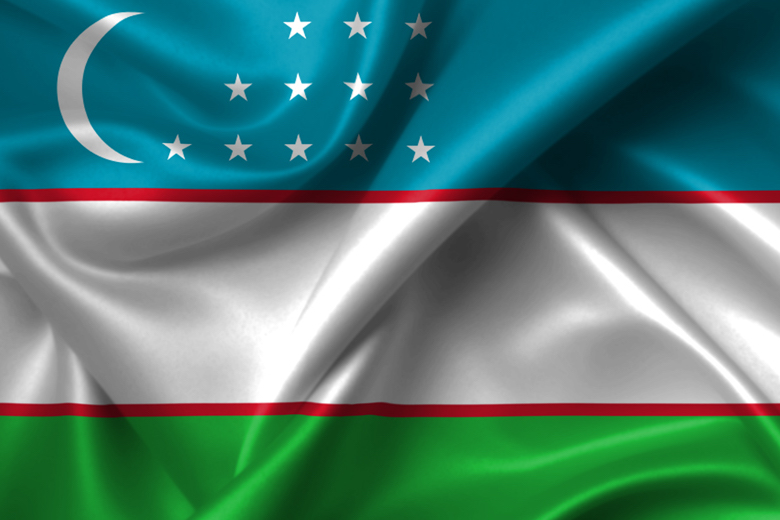
Aug 27, 2019 | News
The ICJ welcomes yesterday’s ratification by Uzbekistan of the CIS Convention on Legal Assistance and Legal Relations in Civil, Family and Criminal Matters 2002, also called the Chisinau Convention. The law on ratification was signed by President Shavkat Mirziyoyev.
The ICJ calls on the Uzbek authorities to take measures to make the Convention’s protective guarantees effective.
“This is a major step forward by Uzbekistan to get its extradition system up to standard with the rest of the world”, said Massimo Frigo, ICJ Senior Legal Adviser. “. “Its ratification of this treaty considerably steps up human rights guarantees in extradition.”
The Chisinau Convention enshrines several human rights guarantees to protect against extraditions that may breach the human rights of the transferred person, including the prohibition to transfer persons where they risk the death penalty or torture or cruel, inhuman and degrading treatment.
“The ratification of the Convention is a very important first step. An effective implementation of these guarantees in the legal and law enforcement systems is necessary now.” said Dmitry Nurumov, ICJ Central Asia Legal Consultant.
Background
Last May, the ICJ held, together with the General Prosecutor’s Office of Uzbekistan, UNODC Regional Office for Central Asia and the Regional Office for Central Asia of OHCHR, a regional and a national seminar on comparative practices in extradition in the CIS and European legal systems, including with regard to human rights guarantees in these procedures.
In 2017, the ICJ issued a report documenting the shortcomings in the Russian Federation, Central Asia and European countries in their extradition systems and other transfer procedures.
The ratification by Uzbekistan of the Chisinau Convention meets part of the recommendations formulated by the ICJ in these occasions.
Contact:
Massimo Frigo, Senior Legal Adviser, e: massimo.frigo(a)icj.org , t: +41229793805










